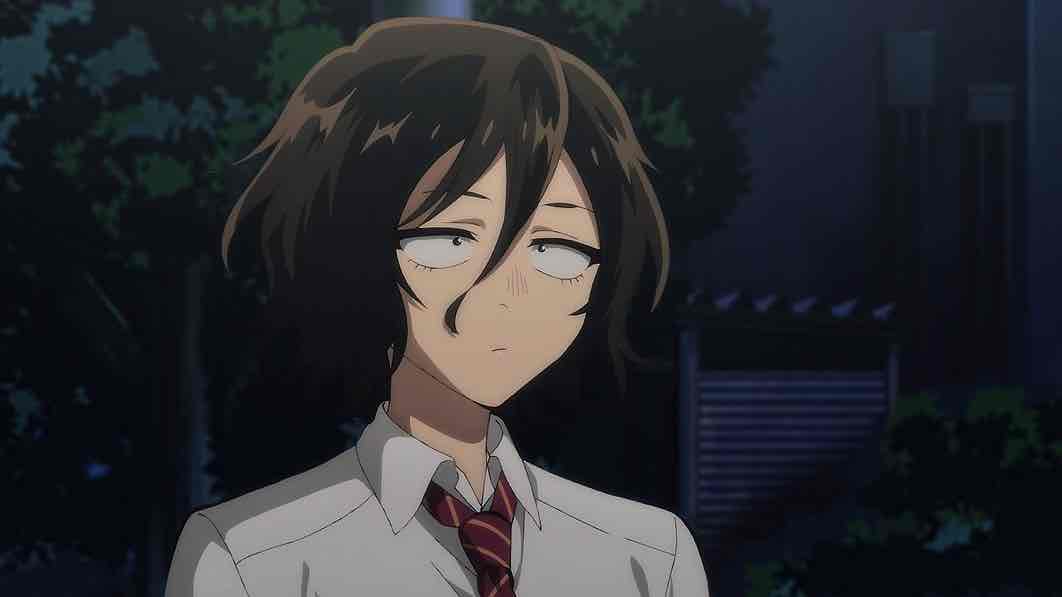 That got pretty conceptual there for a while, but the matters at hand are not simple ones. I don’t think it’s exactly clear yet just what Kou is, but he’s certainly a kid who struggles with the societal norms which come naturally to most. I see basically two directions this series can go with him. It can tell the story of how he just wants to love and have friends like other people and doesn’t know how, or it can tell the story of how he comes to be at peace with who he is. Obviously one of those stories is a lot tougher to sell – and to tell – than the other, but that’s the direction I hope we’re going.
That got pretty conceptual there for a while, but the matters at hand are not simple ones. I don’t think it’s exactly clear yet just what Kou is, but he’s certainly a kid who struggles with the societal norms which come naturally to most. I see basically two directions this series can go with him. It can tell the story of how he just wants to love and have friends like other people and doesn’t know how, or it can tell the story of how he comes to be at peace with who he is. Obviously one of those stories is a lot tougher to sell – and to tell – than the other, but that’s the direction I hope we’re going.
 Ultimately, while it’s an oversimplification I think it boils down to this: is being like other people a worthwhile goal in and of itself? The catalyst for further exploration of this question is the girl who popped up at the end of the last episode, Asai Akira. How did she come to be in possession of the wrist transceiver? She assumed that Kou – who she’d tried to befriend in sixth grade despite his loner nature – had given it to her explicitly. Why? He left it on her family’s mailbox – though the truth is, Kou had no idea he was doing that.
Ultimately, while it’s an oversimplification I think it boils down to this: is being like other people a worthwhile goal in and of itself? The catalyst for further exploration of this question is the girl who popped up at the end of the last episode, Asai Akira. How did she come to be in possession of the wrist transceiver? She assumed that Kou – who she’d tried to befriend in sixth grade despite his loner nature – had given it to her explicitly. Why? He left it on her family’s mailbox – though the truth is, Kou had no idea he was doing that.
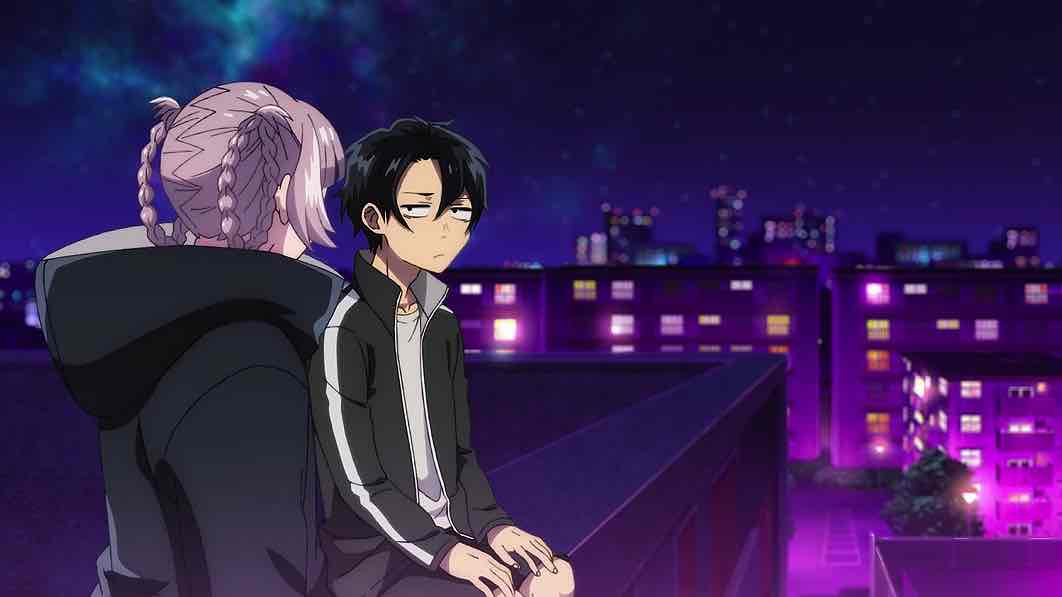 All this time, Asai-san has considered herself Kou’s friend – which comes as a surprise to him. The flashback is quite revealing in this sense: the Kou we see in sixth grade is not unhappy. He’s perfectly content to be off on the edge of the playground watching ants by himself – “you don’t need to run around to play”. He could as easily have said you don’t need to be with other kids to play. Yet we also see Kou musing on why he left the transceiver for someone – not necessarily Akira – to find. Did he want to make a friend, deep down, and just didn’t understand how?
All this time, Asai-san has considered herself Kou’s friend – which comes as a surprise to him. The flashback is quite revealing in this sense: the Kou we see in sixth grade is not unhappy. He’s perfectly content to be off on the edge of the playground watching ants by himself – “you don’t need to run around to play”. He could as easily have said you don’t need to be with other kids to play. Yet we also see Kou musing on why he left the transceiver for someone – not necessarily Akira – to find. Did he want to make a friend, deep down, and just didn’t understand how?
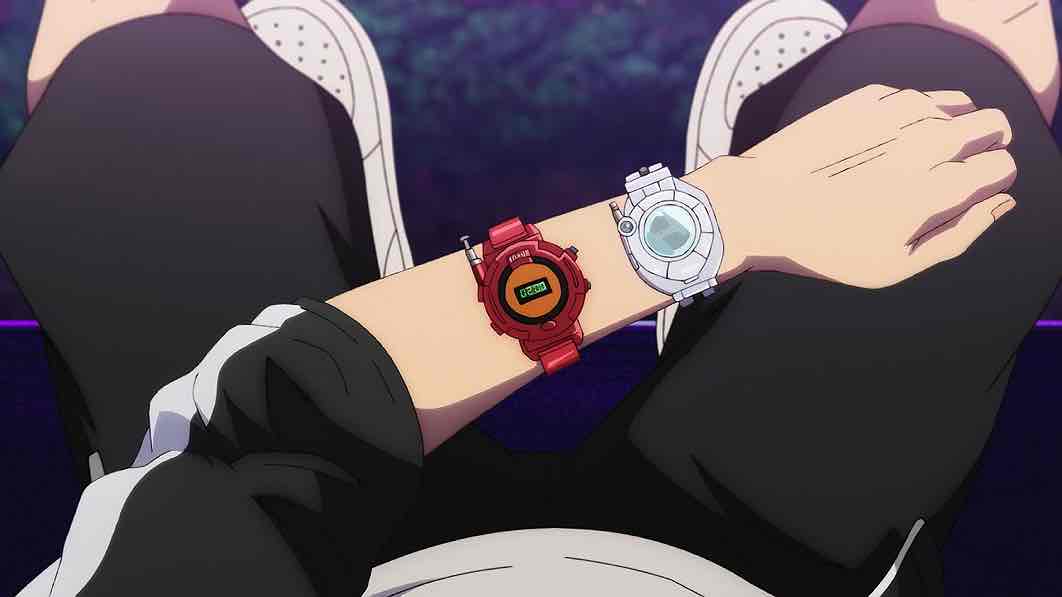 The truth is, as with the question of asexuality, introversion and extroversion are a spectrum. There’s no question that Kou is on the introvert side of it, but that doesn’t automatically mean you want to be a hermit or a hikikomori. For a lot of us introversion isn’t about wanting to be alone all the time like Greta Garbo (Google it) – it’s wanting the option whenever we need it. Kou lacks the emotional intelligence to grasp what any of this means – he doesn’t even really understand what a friend is, and has to ask Nazuna. She’s probably not the best choice, but – who the hell else is he going to ask?
The truth is, as with the question of asexuality, introversion and extroversion are a spectrum. There’s no question that Kou is on the introvert side of it, but that doesn’t automatically mean you want to be a hermit or a hikikomori. For a lot of us introversion isn’t about wanting to be alone all the time like Greta Garbo (Google it) – it’s wanting the option whenever we need it. Kou lacks the emotional intelligence to grasp what any of this means – he doesn’t even really understand what a friend is, and has to ask Nazuna. She’s probably not the best choice, but – who the hell else is he going to ask?
 Asai-san makes a fascinating counterpoint. The Asai Kou remembers was bubbly and outgoing, but this girl is rather quiet and maybe even a bit gloomy. Why is she walking around at four in the morning in her school uniform? Kou asks if she’s on her way home but no, it’s the opposite – and she likes to “take walks” before school. Coupled with her later admission that she’s not enjoying her time either at home or at school, and one could speculate that her family situation may be less than ideal. We don’t really know Kou’s family situation either, except that he must think his parents would be upset at his current lifestyle or he wouldn’t feel the need to sneak out.
Asai-san makes a fascinating counterpoint. The Asai Kou remembers was bubbly and outgoing, but this girl is rather quiet and maybe even a bit gloomy. Why is she walking around at four in the morning in her school uniform? Kou asks if she’s on her way home but no, it’s the opposite – and she likes to “take walks” before school. Coupled with her later admission that she’s not enjoying her time either at home or at school, and one could speculate that her family situation may be less than ideal. We don’t really know Kou’s family situation either, except that he must think his parents would be upset at his current lifestyle or he wouldn’t feel the need to sneak out.
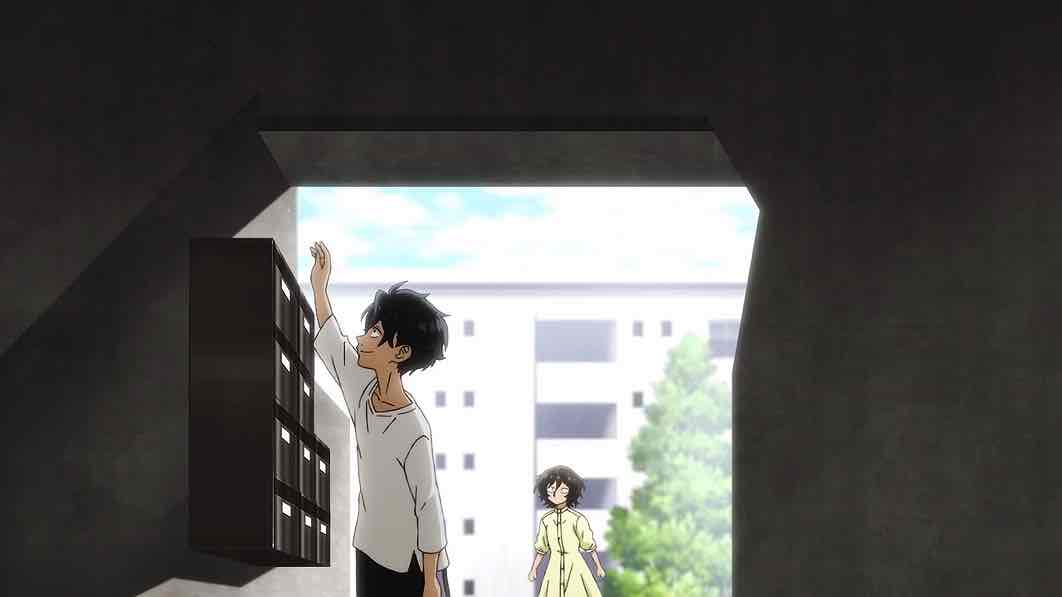 Kou, being the iconoclast he is, simply tapped out when normal life stopped working for him. Asai, by contrast, still goes to school. And not only that, she asks Kou to come back – clearly because his presence there would help her cope with her own unhappiness at not fitting in. That’s pretty sad, considering he hasn’t even really thought about her for two years. She stays the course and is miserable – he does what he wants and seems pretty content. Is one of them right and the other wrong, or is the truth somewhere in between?
Kou, being the iconoclast he is, simply tapped out when normal life stopped working for him. Asai, by contrast, still goes to school. And not only that, she asks Kou to come back – clearly because his presence there would help her cope with her own unhappiness at not fitting in. That’s pretty sad, considering he hasn’t even really thought about her for two years. She stays the course and is miserable – he does what he wants and seems pretty content. Is one of them right and the other wrong, or is the truth somewhere in between?
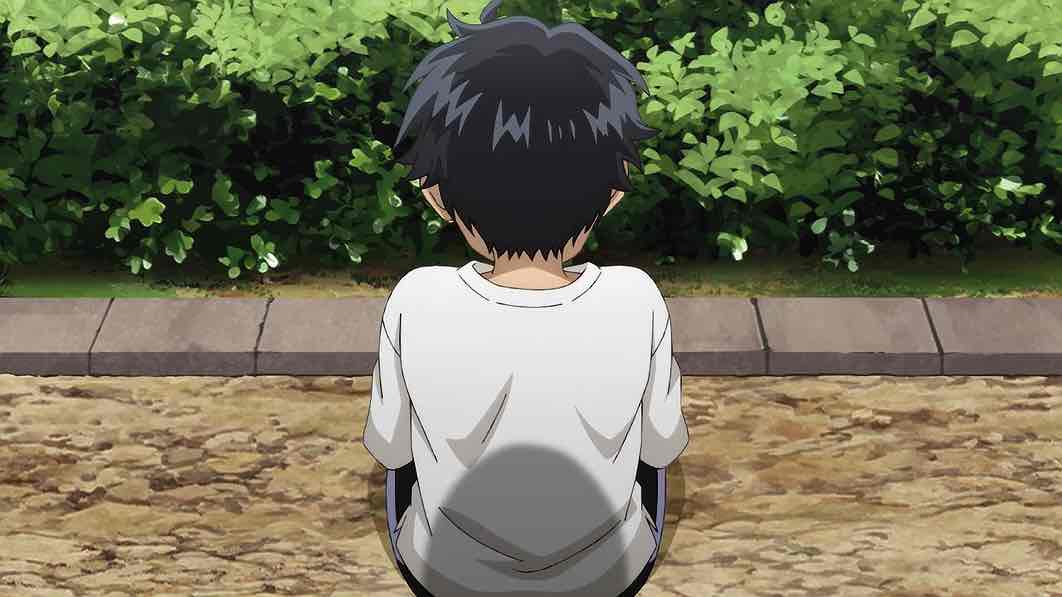 Also interesting is Nazuna’s reaction when she’s clued in on this (by following Kou). He may lack social awareness but instinctively he senses he can’t tell the girl he meets every night that he’s leaving to meet another “day” girl. Nazuna’s feelings may be more complicated than simple jealousy, but her actions – she effectively marks her boy by biting him in front of Nazuna, an act she basically equates with sex – speaks pretty loudly. When she finally relents to his efforts to make amends she tells him that the reason she was irritated by this turn of events is Asai asking him to go back to school. Asking him to reject his outsider life choices and go back to being a normal person. I suspect there’s more to it, but I have no doubt Nazuna is sincere about that.
Also interesting is Nazuna’s reaction when she’s clued in on this (by following Kou). He may lack social awareness but instinctively he senses he can’t tell the girl he meets every night that he’s leaving to meet another “day” girl. Nazuna’s feelings may be more complicated than simple jealousy, but her actions – she effectively marks her boy by biting him in front of Nazuna, an act she basically equates with sex – speaks pretty loudly. When she finally relents to his efforts to make amends she tells him that the reason she was irritated by this turn of events is Asai asking him to go back to school. Asking him to reject his outsider life choices and go back to being a normal person. I suspect there’s more to it, but I have no doubt Nazuna is sincere about that.
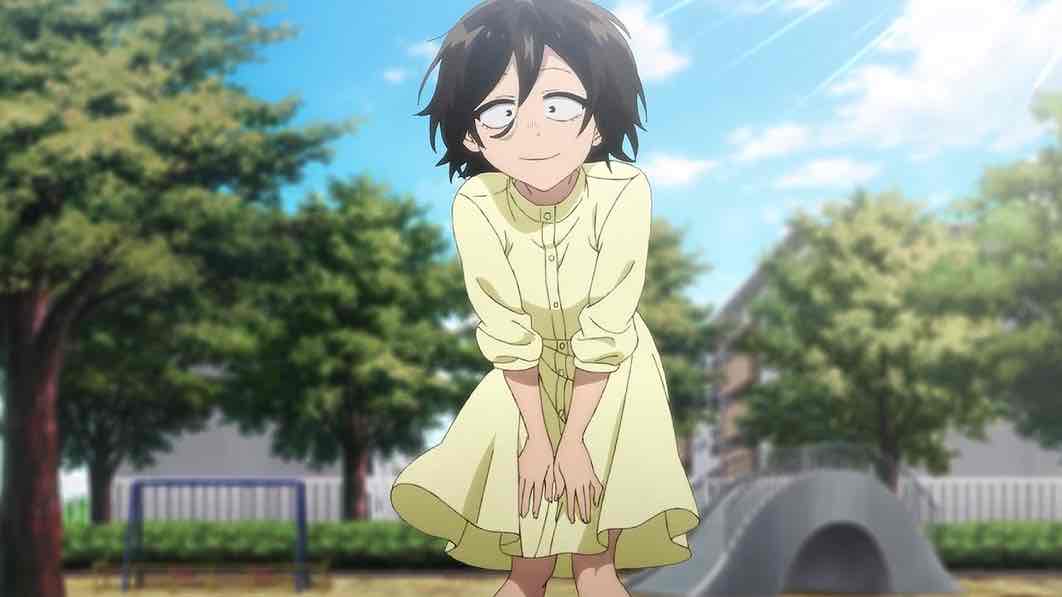 As you can tell, this is a theme I find pretty fascinating, and I think it’s being explored with a good deal of intelligence. Someone like Kou – who lacks the context to know whether someone is a friend or not, and what exactly constitutes a fight and how one can be resolved – is a really interesting subject for exploration in fiction. Conformity is at issue here – that, and accepting ourselves for who we are. And of course, how to balance those two competing priorities when society makes it difficult for us to just be ourselves.
As you can tell, this is a theme I find pretty fascinating, and I think it’s being explored with a good deal of intelligence. Someone like Kou – who lacks the context to know whether someone is a friend or not, and what exactly constitutes a fight and how one can be resolved – is a really interesting subject for exploration in fiction. Conformity is at issue here – that, and accepting ourselves for who we are. And of course, how to balance those two competing priorities when society makes it difficult for us to just be ourselves.


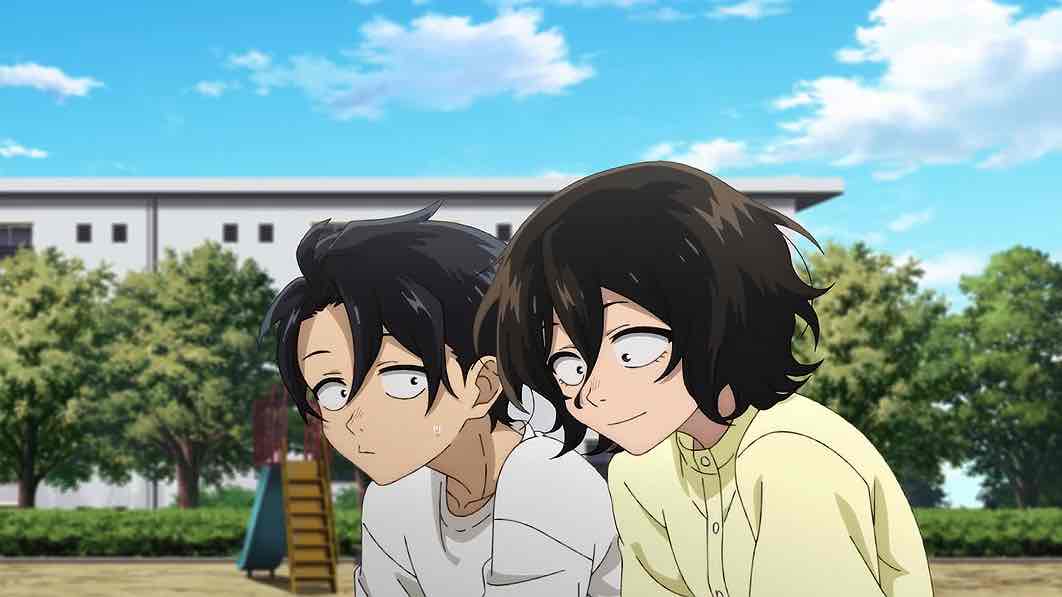
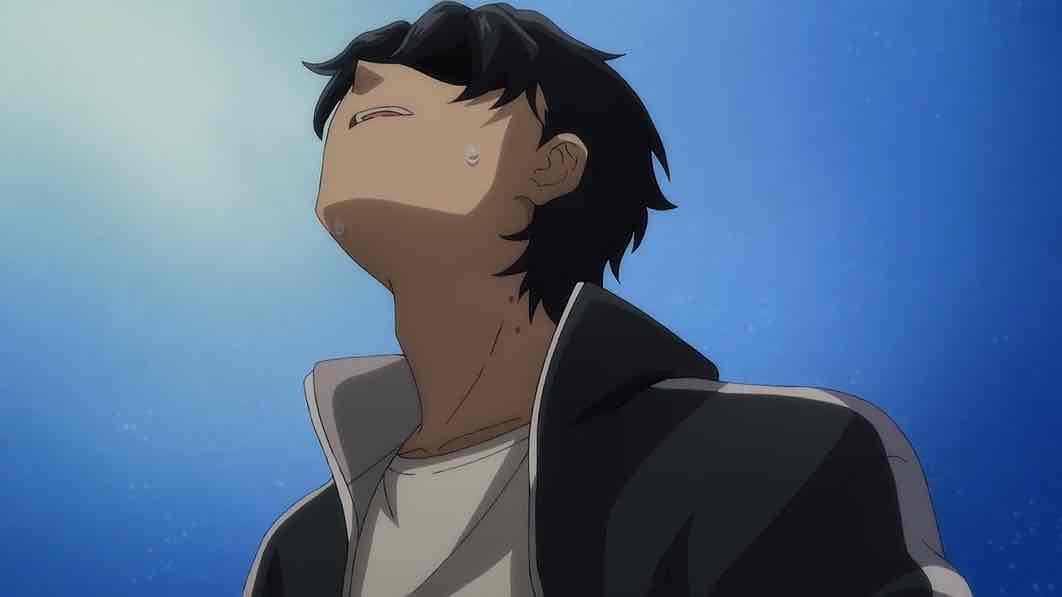
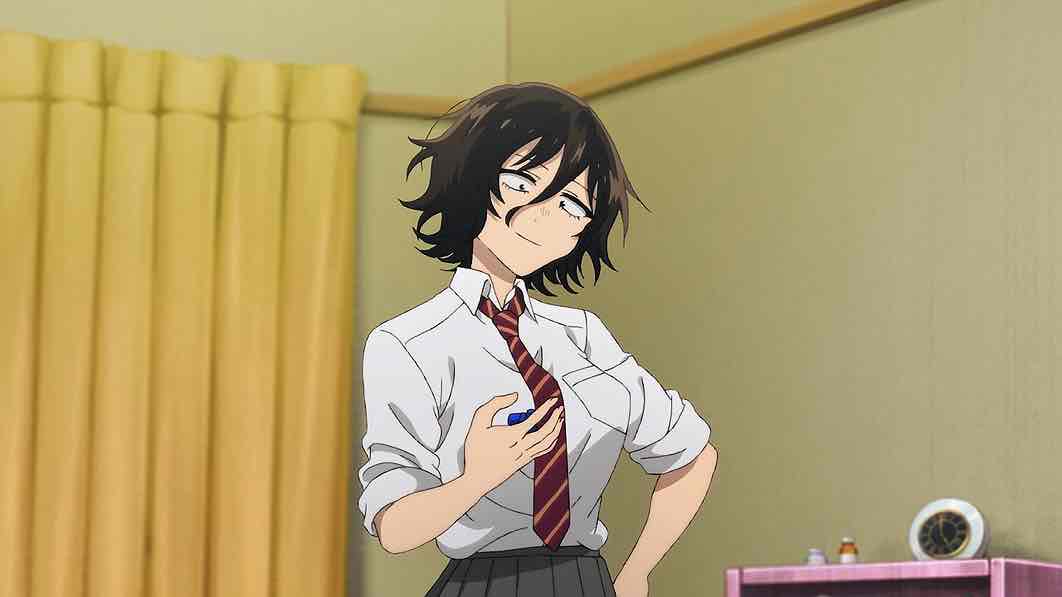
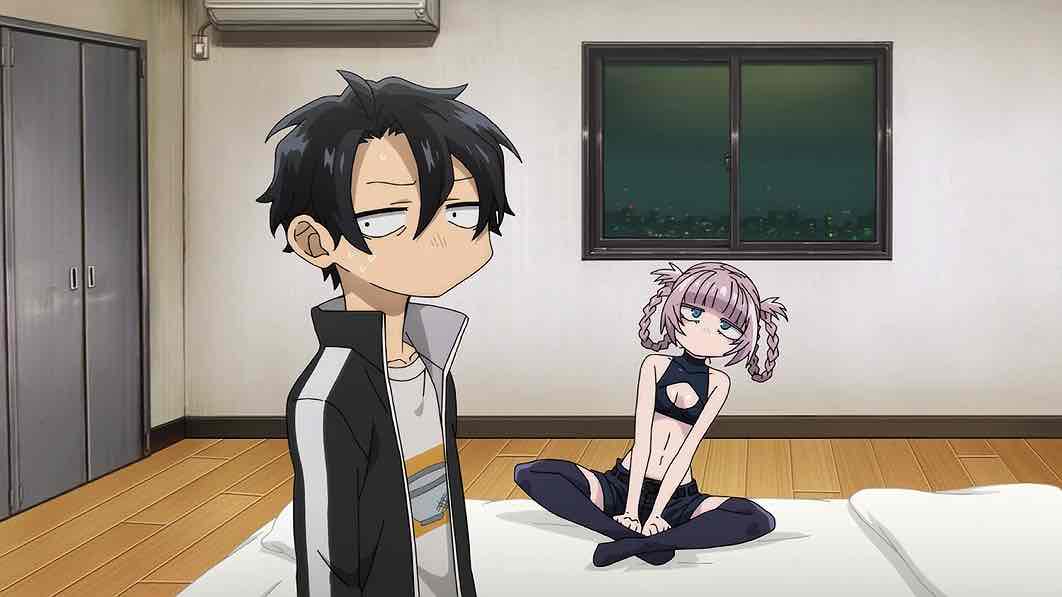
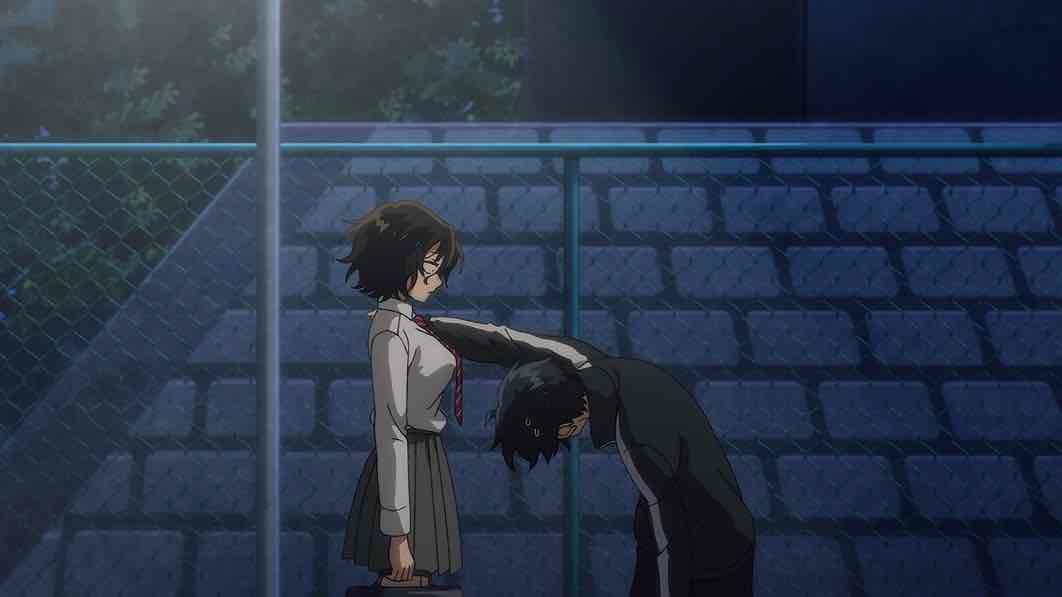
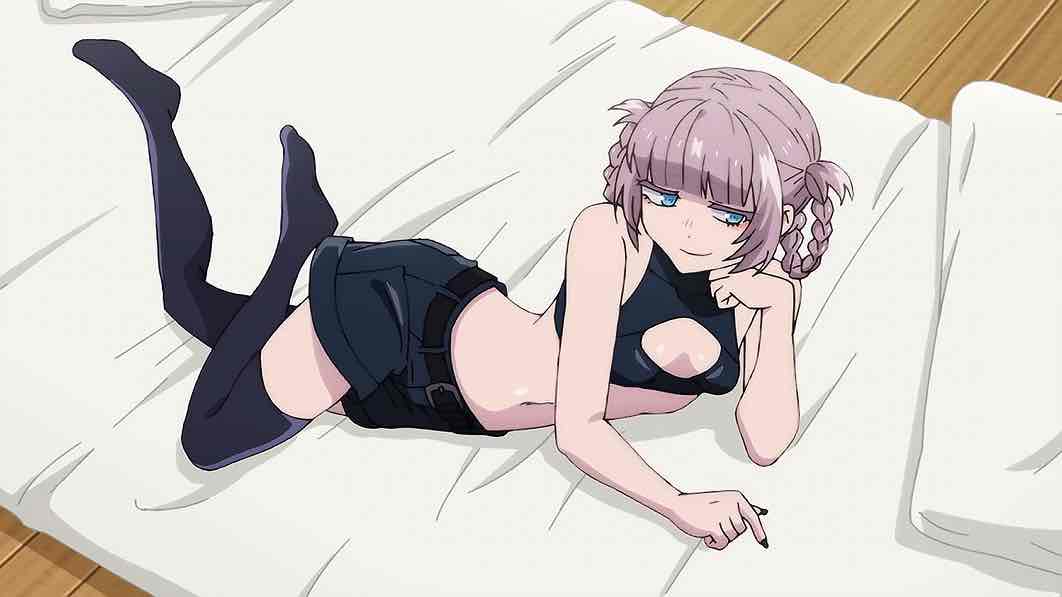
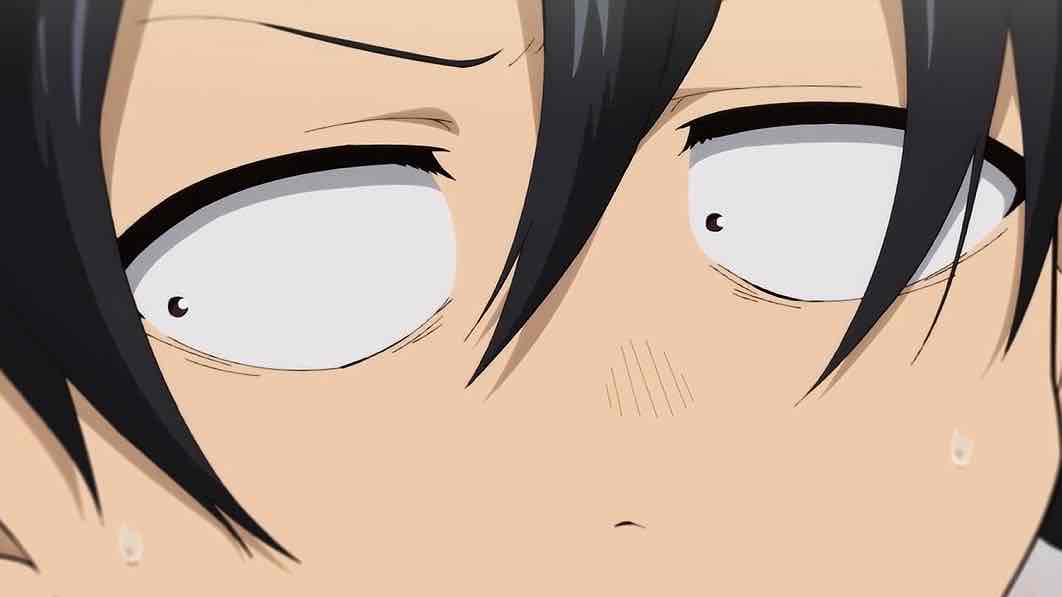
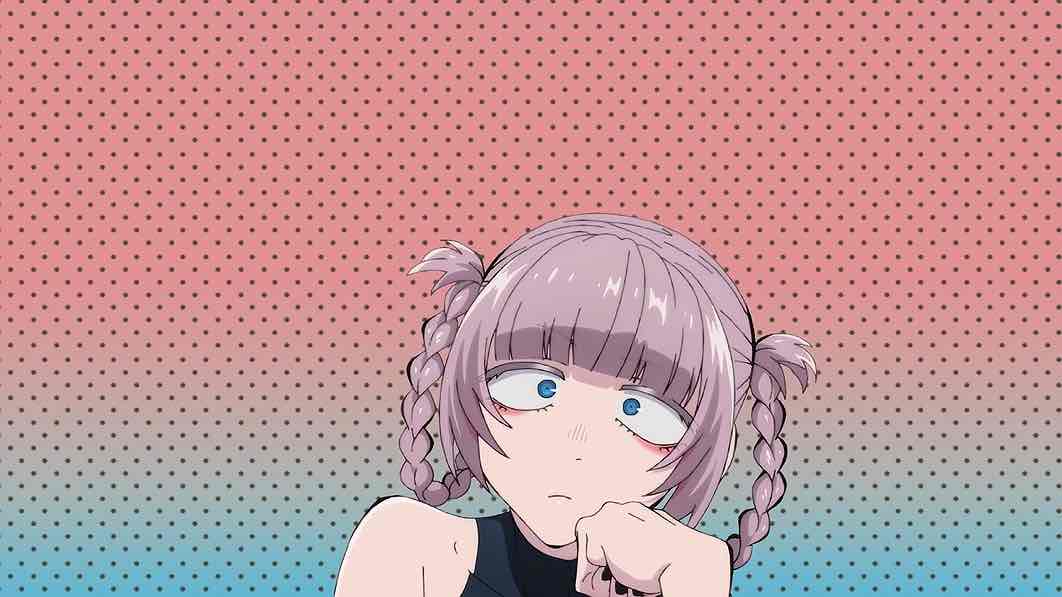

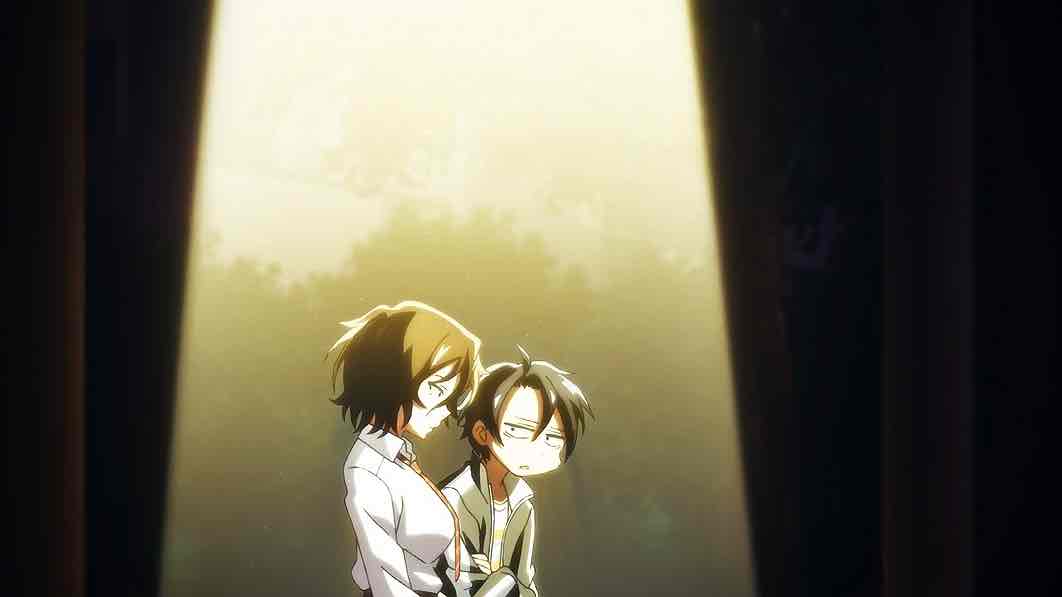
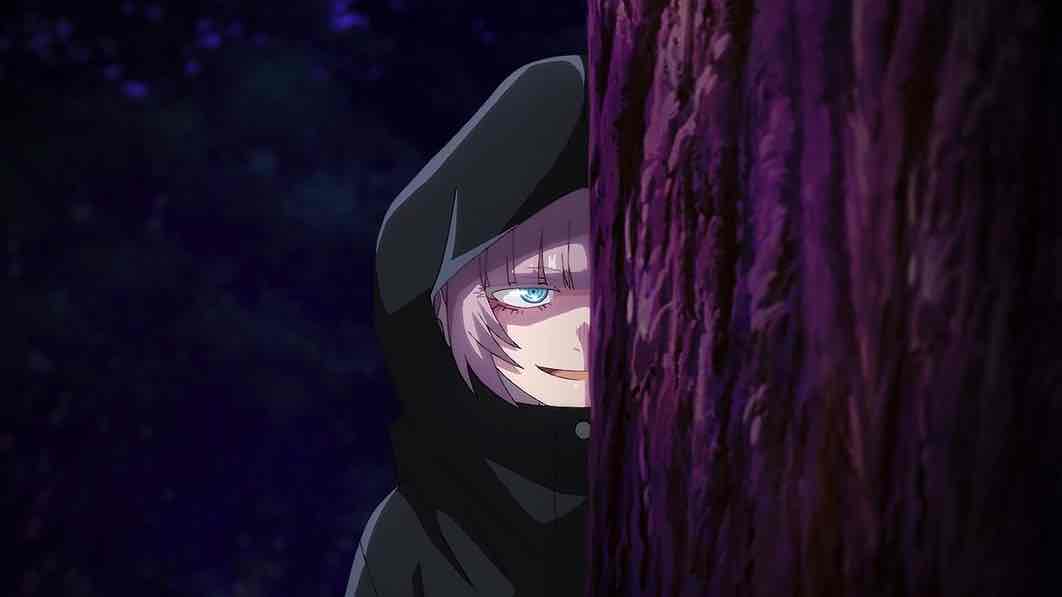
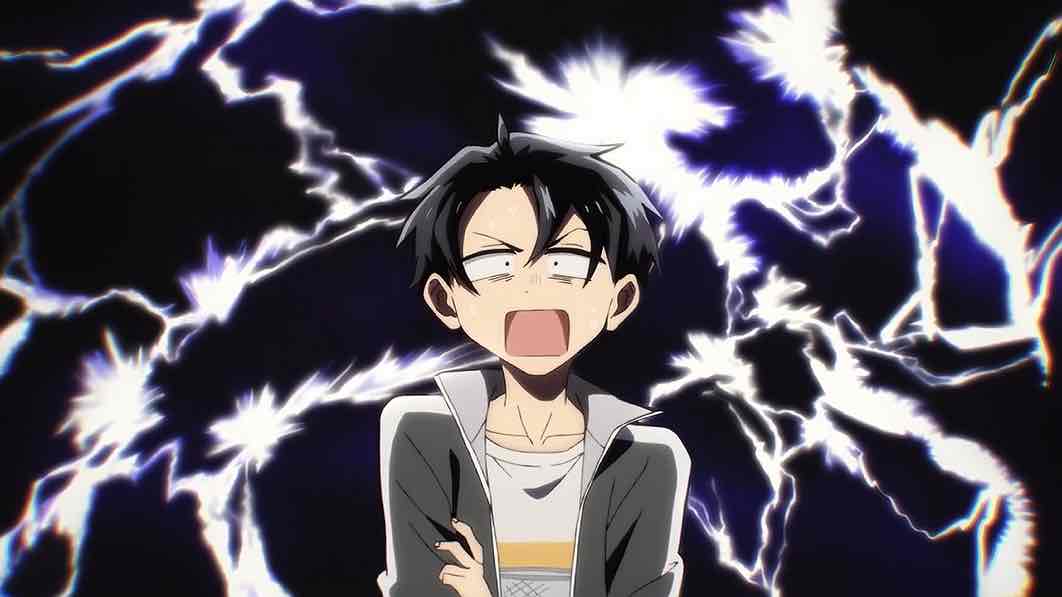
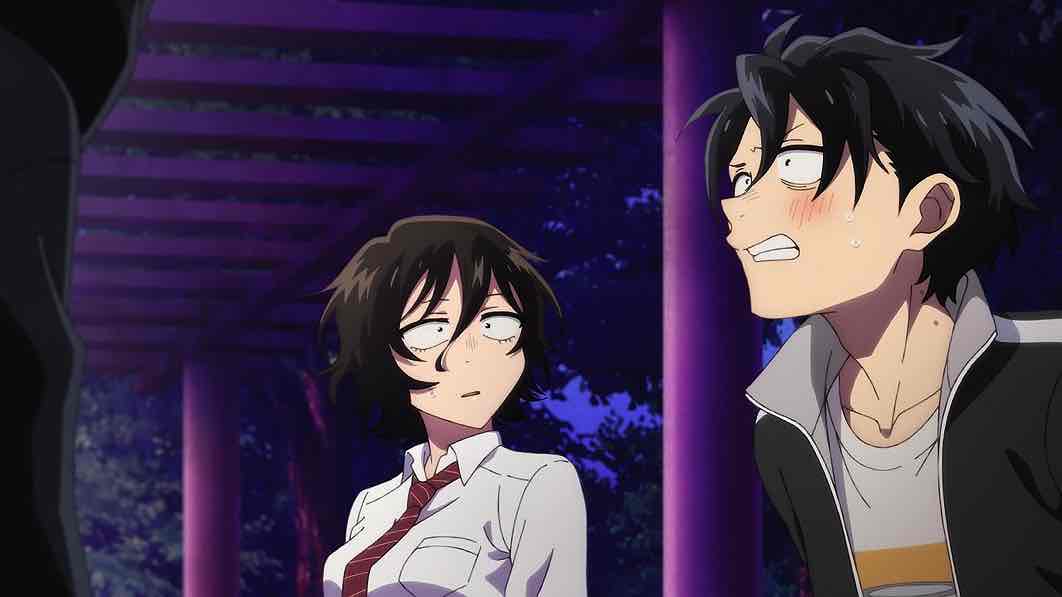
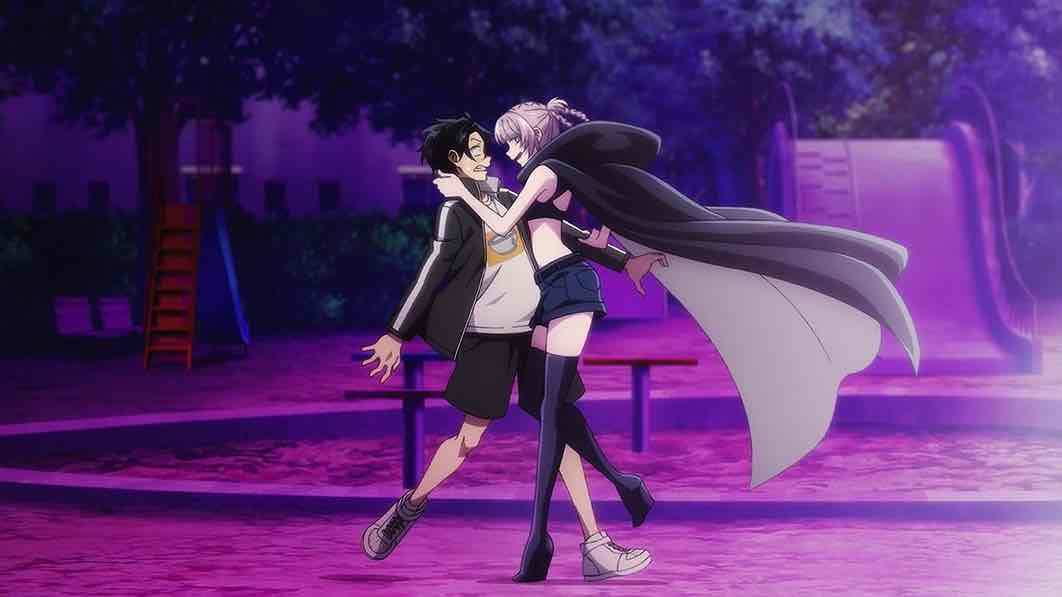
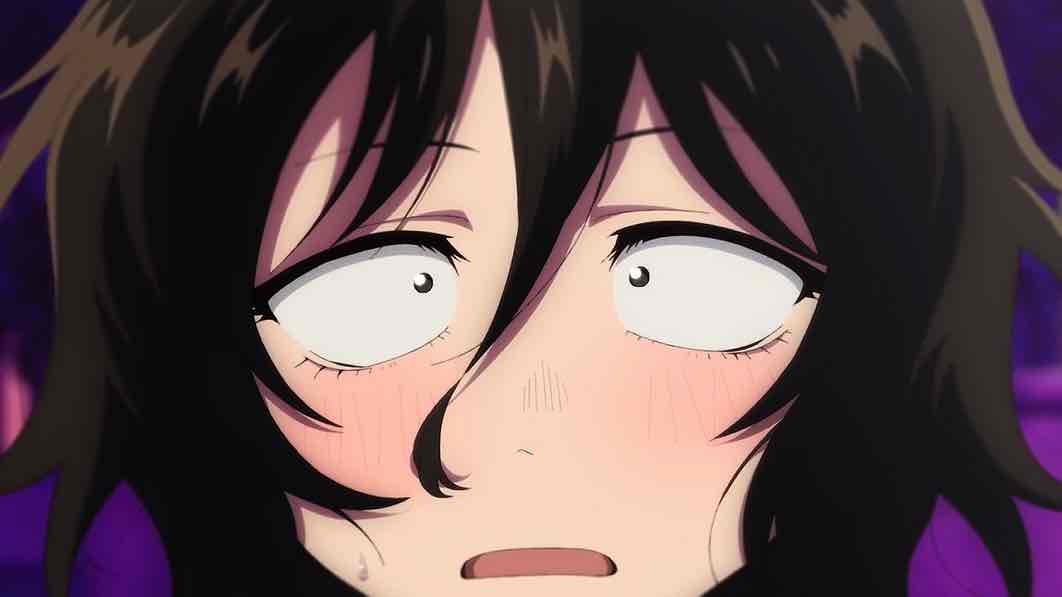
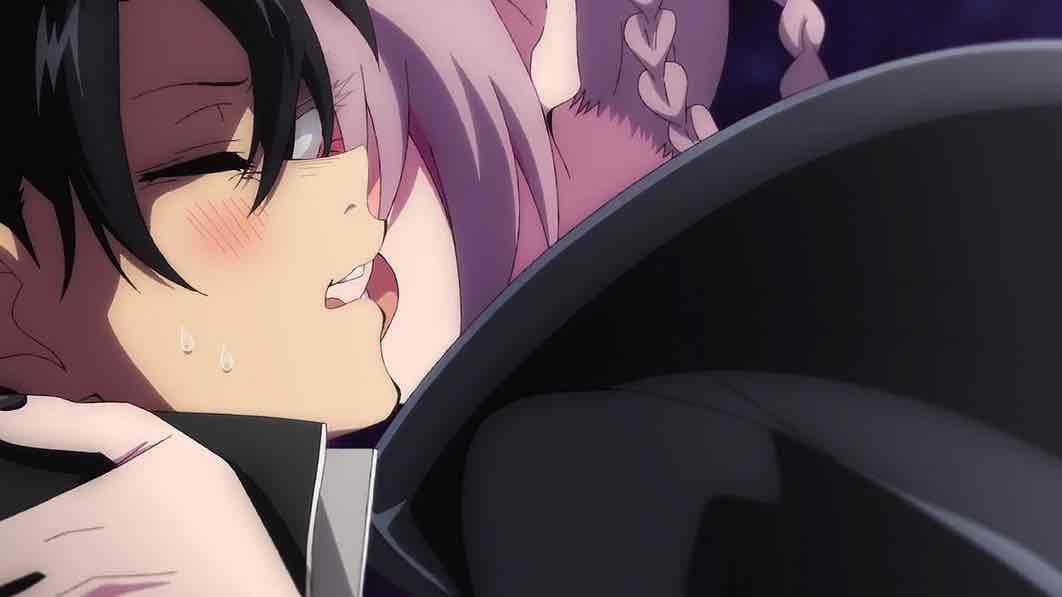
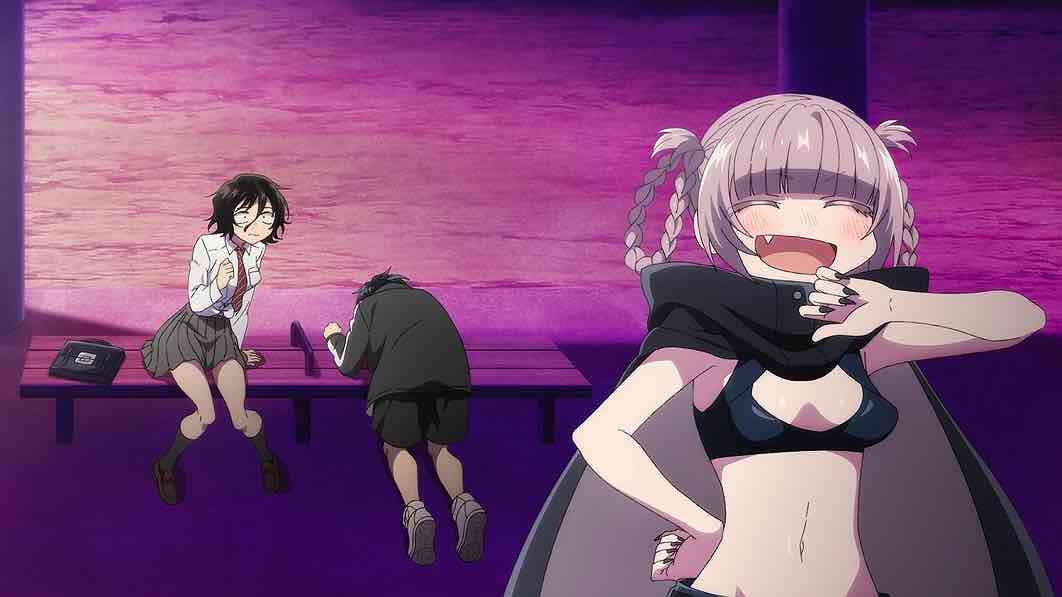
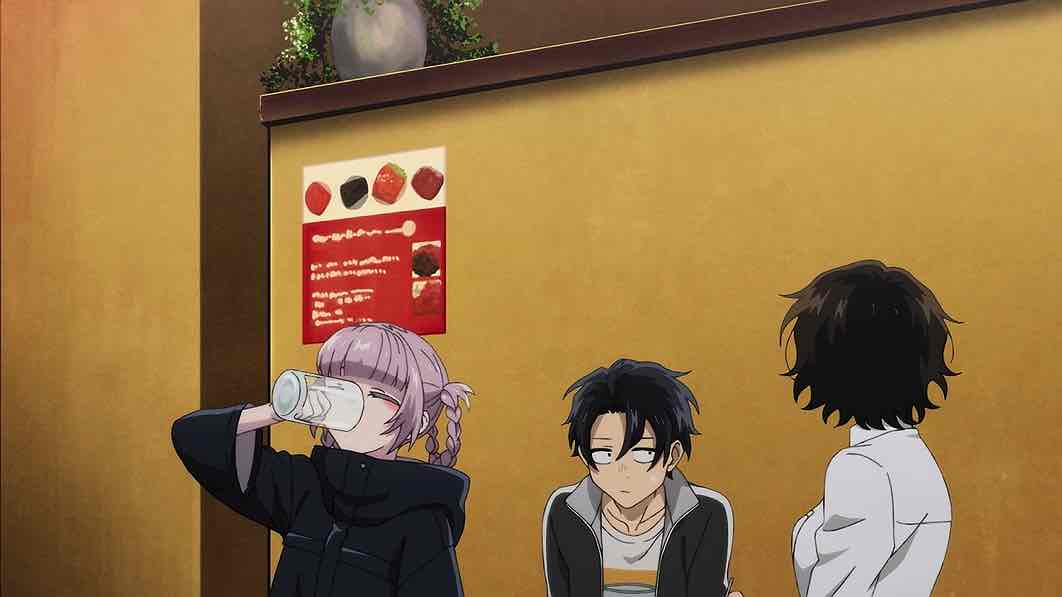

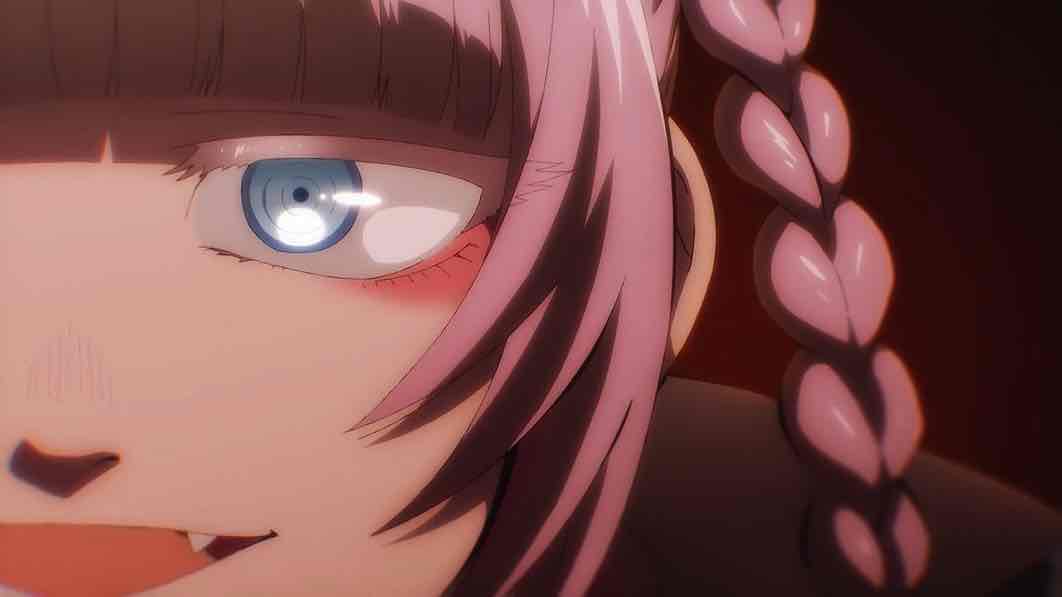
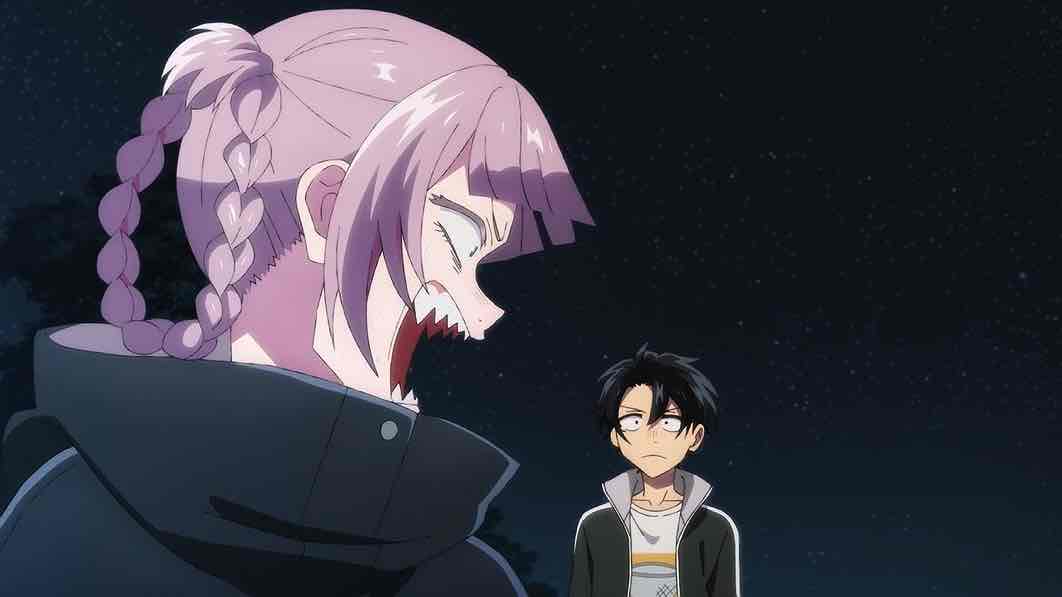
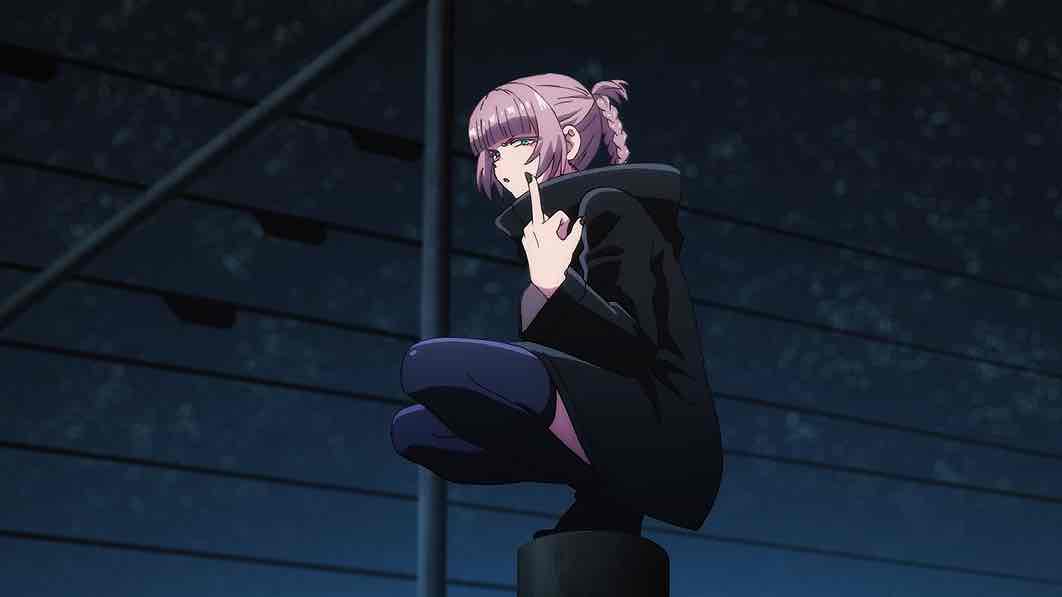
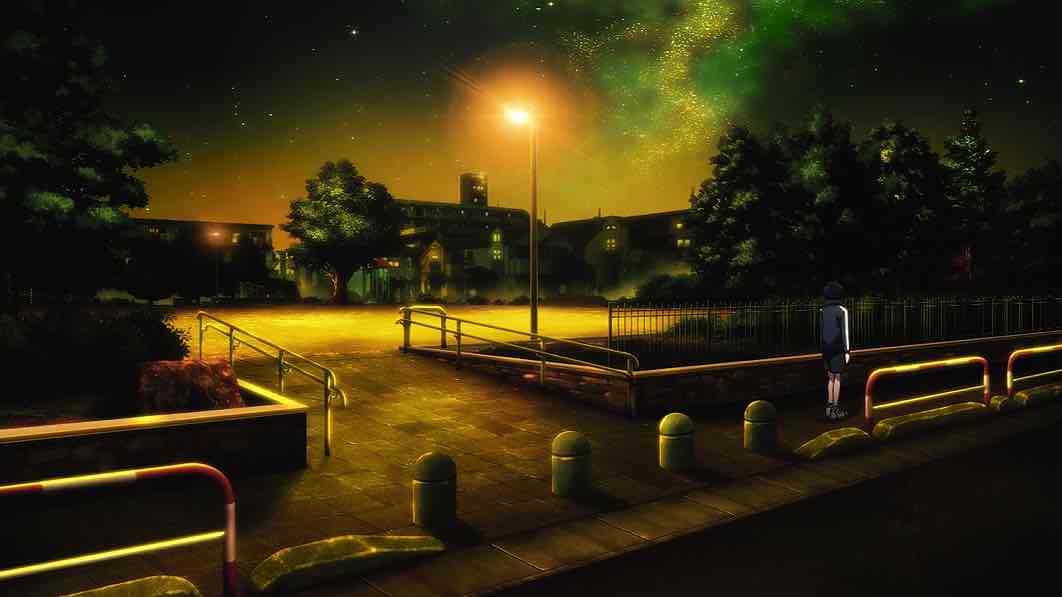
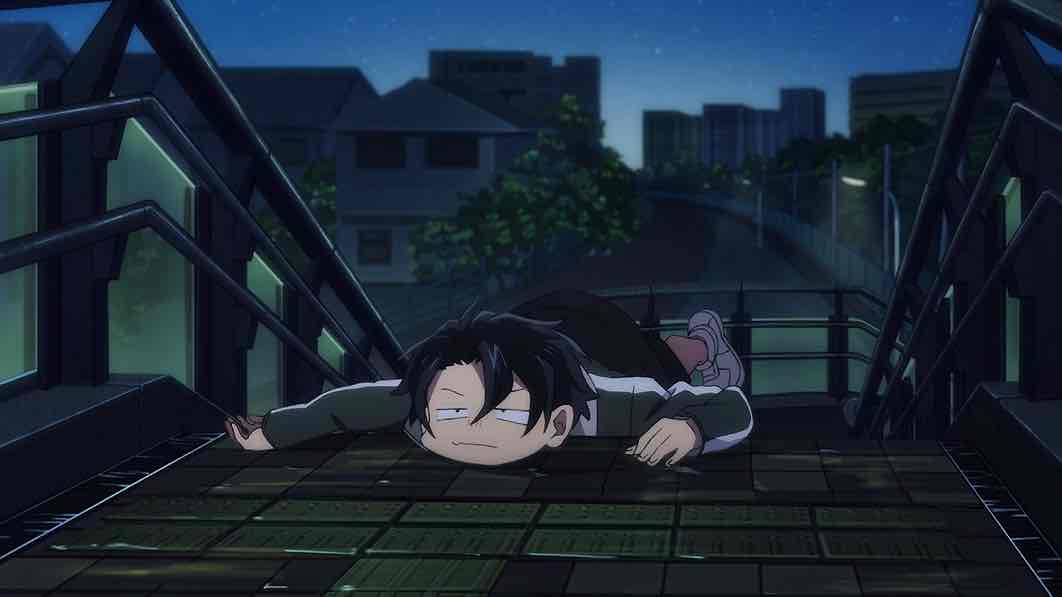
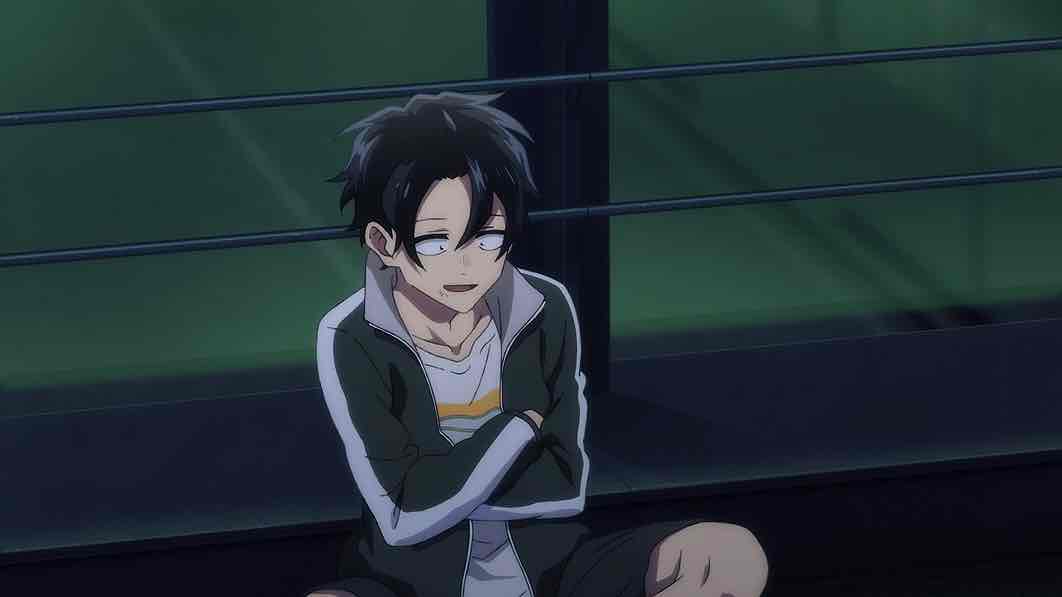
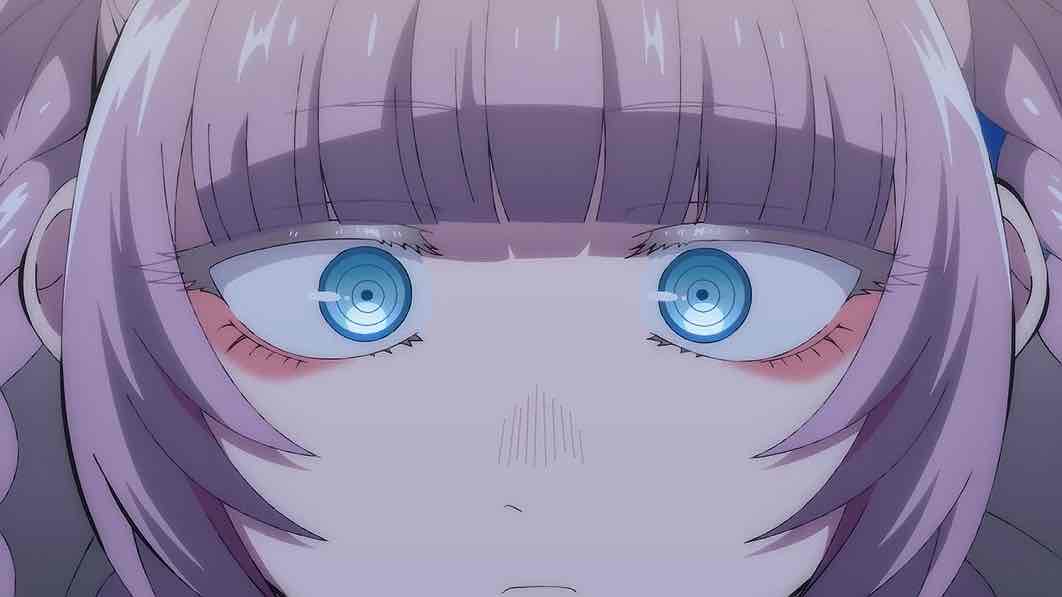
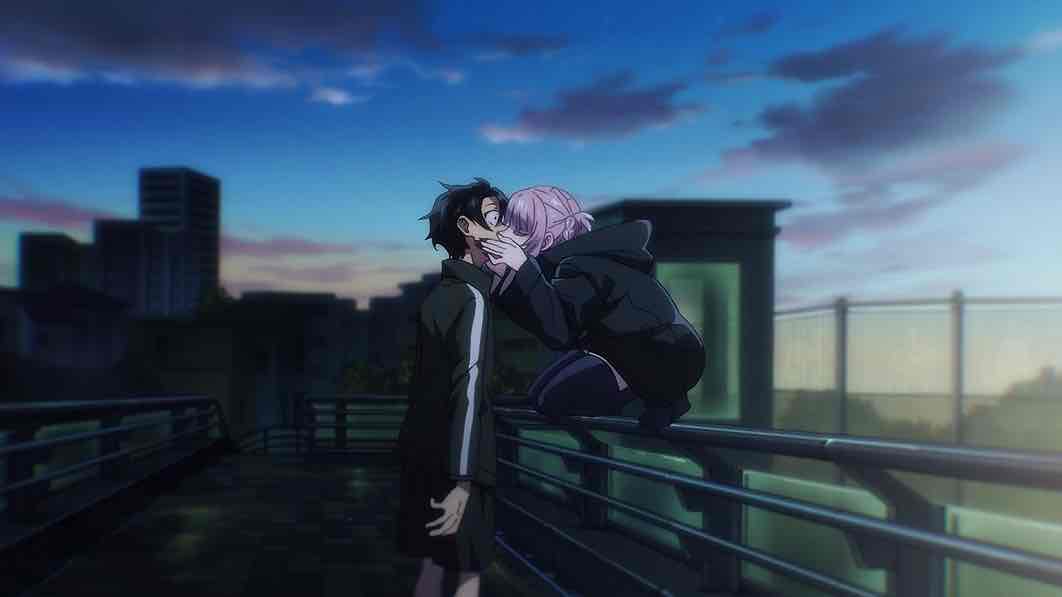
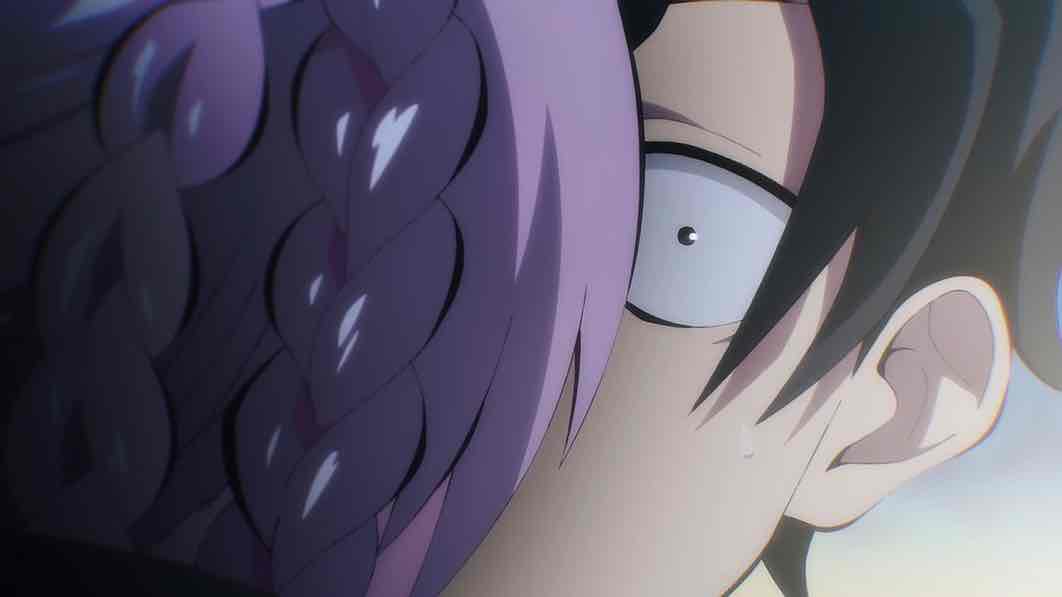
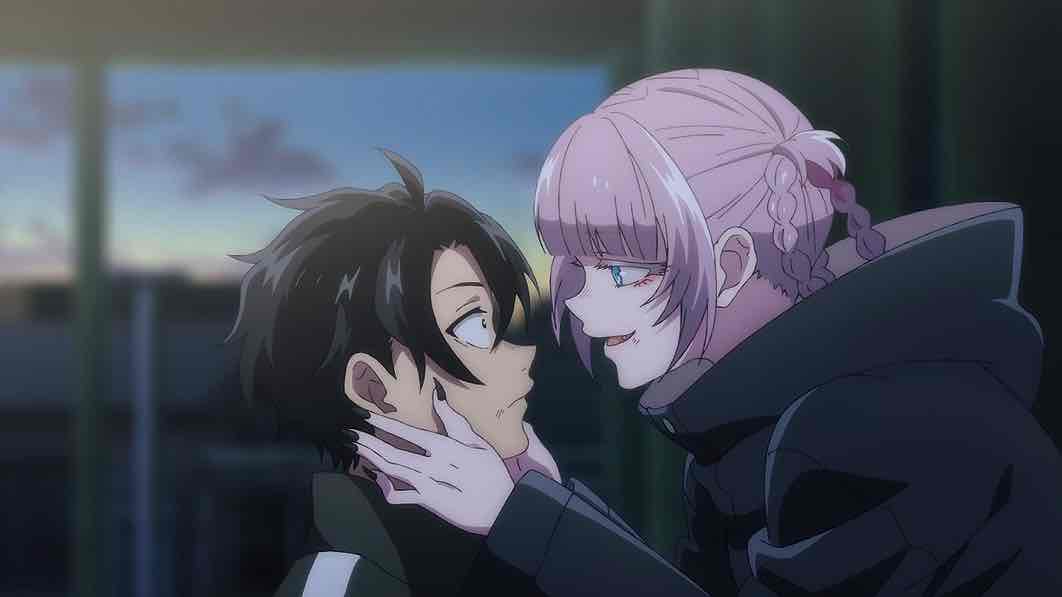

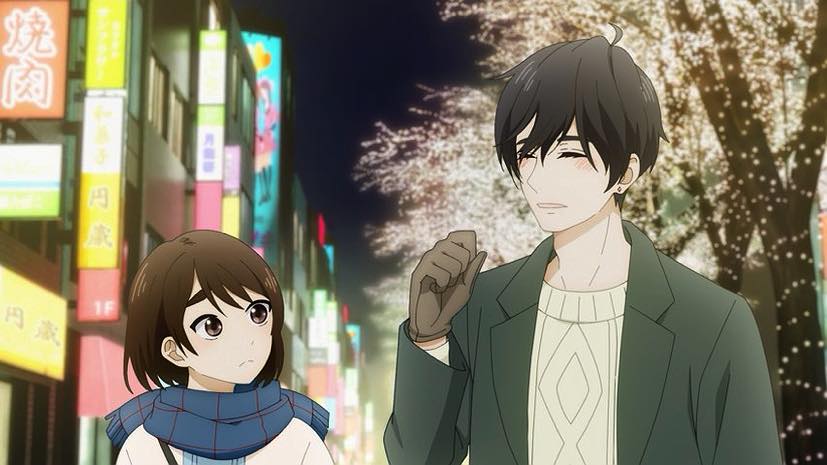
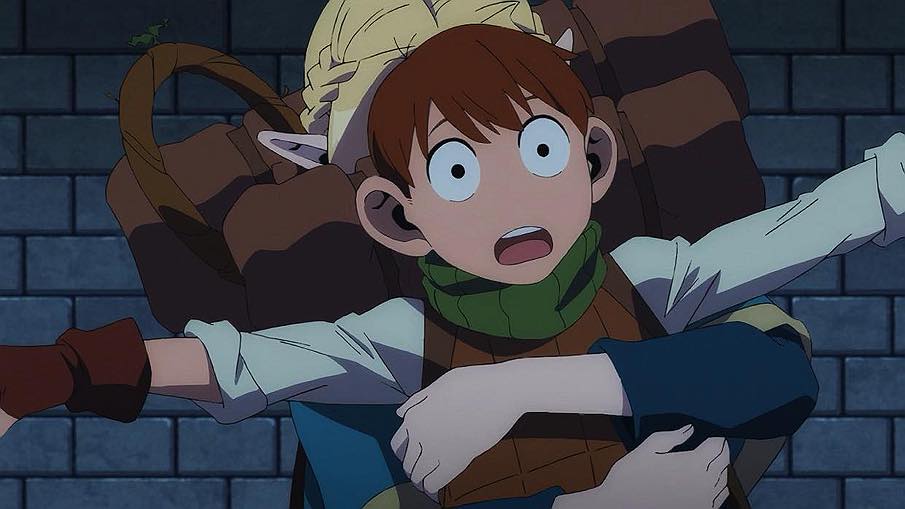
sonicsenryaku
July 23, 2022 at 12:49 amSee? I said Call of the Night would be good! Figured this series would be in your wheelhouse of storytelling and so far it’s not disappointing; well me anyway.
Guardian Enzo
July 23, 2022 at 7:54 amAnyone who’s introverted or has experienced the call of the night would be drawn into this, I think. Very relatable for us.
sonicsenryaku
July 23, 2022 at 8:35 amPrecisely
Haraga
July 23, 2022 at 1:07 amThere’s plenty to talk about regarding the show’s themes, but somehow what comes to my mind first is great background art. Each time there’s a new shot, I have to stop playback and spend a few seconds marveling at them. The show captures the beauty of nighttime amazingly well, even if you aren’t this kind of person yourself, you can see why some people just love taking walks at night.
Guardian Enzo
July 23, 2022 at 7:53 amI’ve seen some criticism of the show for being a bit scattershot in its aesthetic, which I sorta get. But overall the art design is working for me.